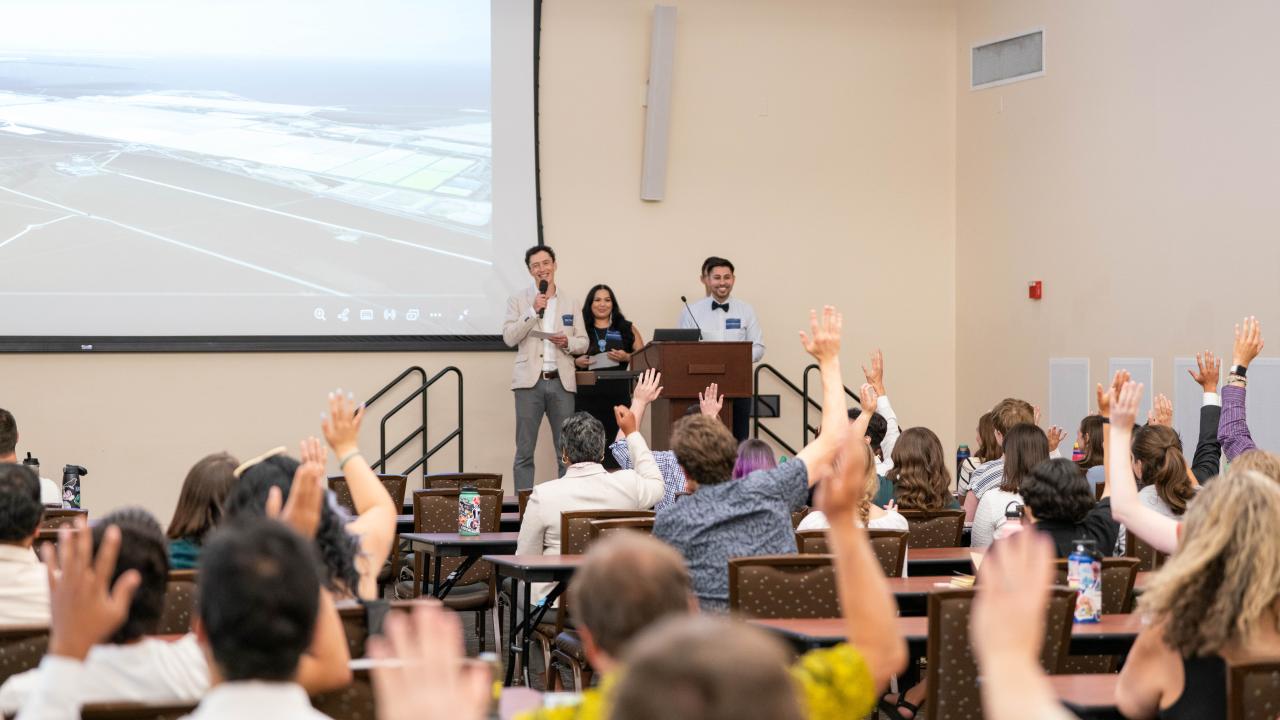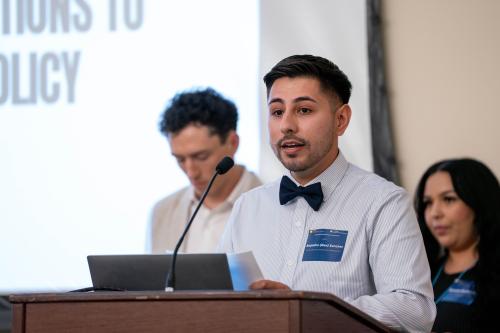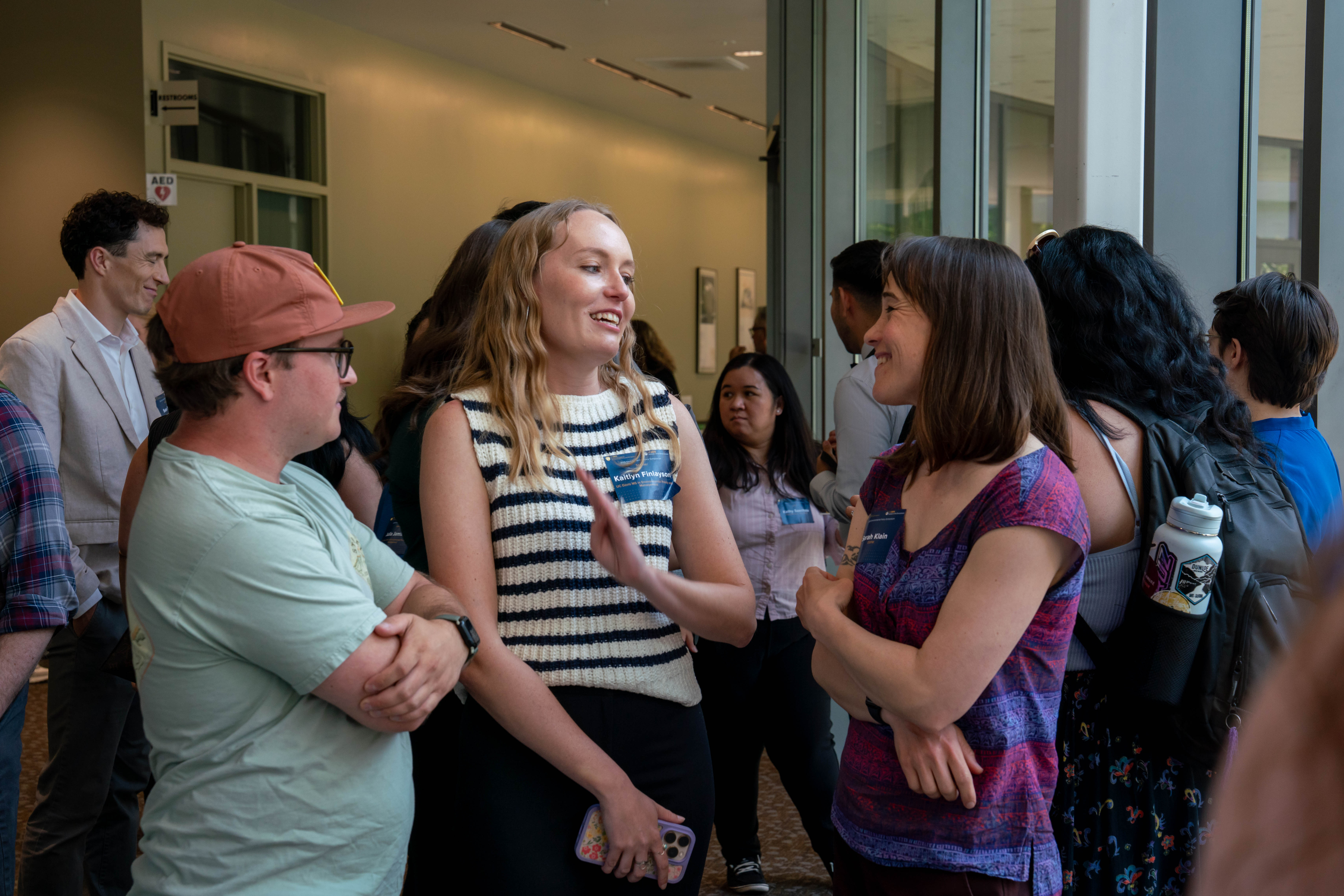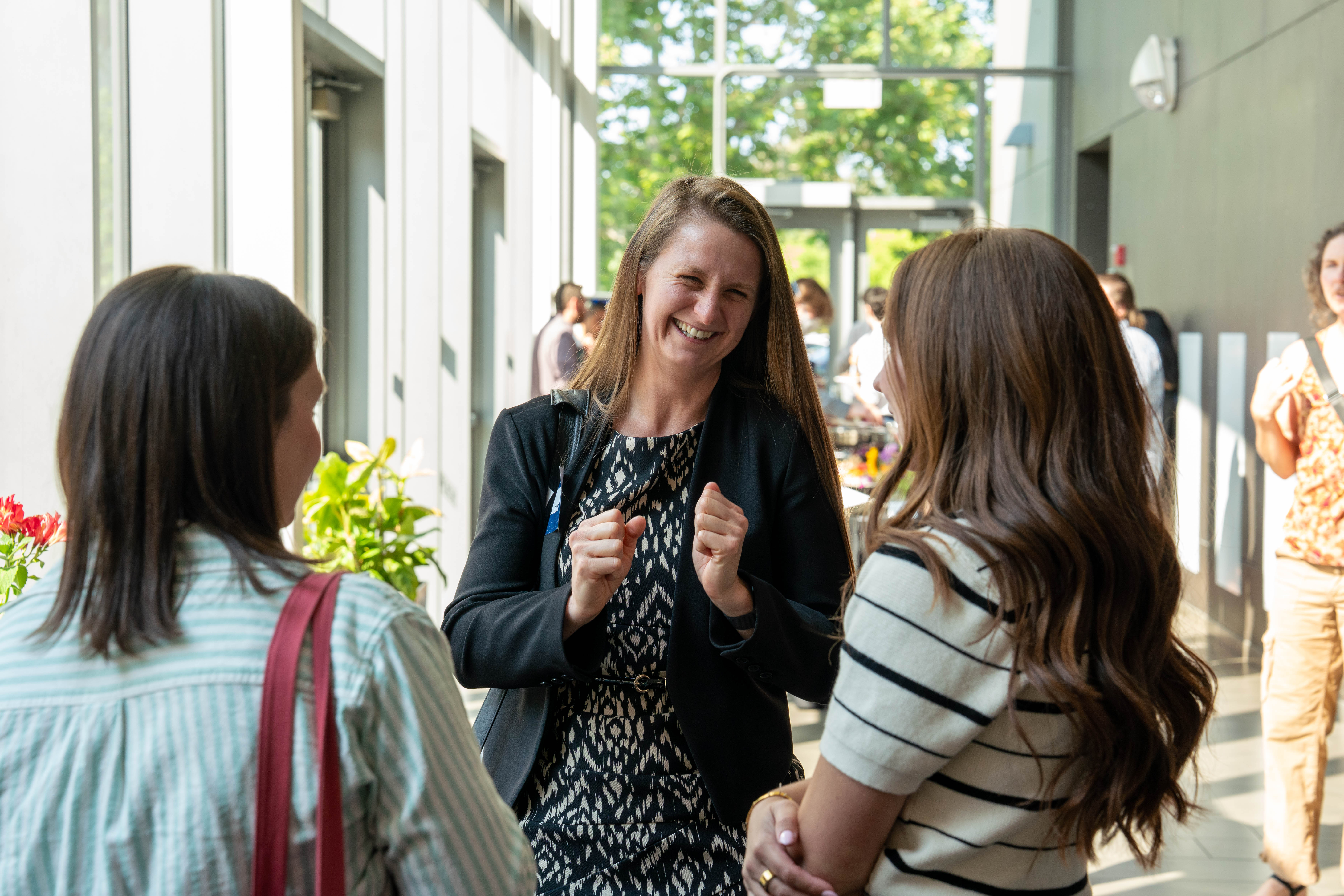
From Classroom to Community: UC Davis Students Present Solutions to Critical Environmental Issues
In early June, the UC Davis Graduate Program of Environmental Policy and Management hosted the third annual UC Davis Environmental Policy Symposium, marking another successful year of bringing together students, professionals, and community members to address pressing environmental issues. The event, held at the UC Davis Conference Center, drew over 100 guests for the engaging half-day program that highlighted the intersection of academic research and real-world environmental policy solutions.
A Platform for Emerging Environmental Leaders

The symposium served as a capstone showcase for masters students in the Environmental Policy and Management program, providing them with a valuable opportunity to present their research findings to a diverse audience of environmental professionals, policymakers, academics, and community stakeholders. The event has grown significantly since its inception, reflecting the increasing recognition of the program's contributions to environmental policy conversations in California and beyond.
Presentations Address Contemporary Environmental Challenges
The symposium featured six presentations that tackled some of the most pressing environmental issues facing California and the nation. Each presentation represented months of intensive research, data analysis, and stakeholder engagement conducted by teams of graduate. Presentation topics included:
- Human dimensions of marine protected area management
- Social and environmental impacts of lithium mining as society shifts to electric vehicles
- Ecological restoration and environmental justice on California's coastline
- Climate-smart farming techniques reshaping food systems in California's Delta
- Critical updates to general plans that include environmental justice tools to frame community development
- Navigating California's evolving environmental legislation landscape in the wake of federal changes
The Environmental Policy Clinic: Bridging Academia and Practice
These presentations emerged from the Environmental Policy Clinic, an innovative two-quarter course led by Instructor Abre' Conner that exemplifies applied learning and real-world impact. The clinic operates on a collaborative model where small teams of master's students partner directly with environmental organizations and government agencies to address policy or management challenges.
This experiential learning approach allows students to apply theoretical knowledge to practical problems while providing partner organizations with valuable research capacity and fresh perspectives. The clinic has become a cornerstone of the graduate program, consistently producing high-quality products that assists organizations in policy and management decisions.
Building A Partnership Network


This year's symposium showcased the program's network of partnerships with leading environmental organizations and government agencies. The partner organizations included Oregon Department of Fish and Wildlife, Stockholm Environmental Institute, California Coastal Commission, Delta Stewardship Council, Governor's Office of Land Use and Climate Innovation and League of California Cities. The diversity of partner organizations ensures that students gain exposure to environmental issues at multiple scales, from local community concerns to international policy frameworks.
Looking Forward: Building Environmental Policy Leadership
The success of the symposium reflects the growing impact of the UC Davis Environmental Policy and Management program. As environmental challenges continue to evolve and intensify, events like this symposium play a crucial role in developing the next generation of environmental leaders and fostering collaboration between academic institutions and the broader environmental community.
As the program continues to grow and evolve, the symposium will undoubtedly remain a vital platform for showcasing student research, fostering professional networks, and advancing the field of environmental policy and management through the innovative work of dedicated graduate students and their community partners.
